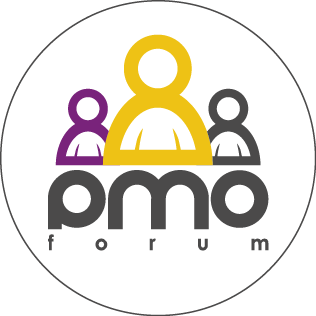The world of the project management office (PMO) has changed dramatically, shifting away from the PMO having an administrative or support role only towards adding real business value. This evolution has been similarly reflected in the career opportunities available within the PMO space.
The time of referring to a PMO-related career as ‘accidental’ is most definitely in the past, explains Daléne Grobler, project and portfolio management (PPM) executive consultant at Project Portfolio Office, a business that helps organisations achieve greater project success by assisting at every level of the PPM process.
Grobler chaired a recent PMO Forum event, a quarterly invitation-only interest group falling under the umbrella of Project Management South Africa (PMSA) and sponsored by Project Portfolio Office, that saw House of PMO co-founder, Lindsay Scott, tackle this exact topic.
“We urge individuals within the PMO to take control of their careers, so that their professional advancement is more intentional,” she says. “And there were several key takeaway points discussed at the PMO Event that will resonate with anyone already working within a PMO, or for those considering this career direction.”
The discussion delved into practical pointers around how to execute on career management, such as:
- Self-awareness: asking yourself questions to build a base level understanding of what you have to offer. What interests you? What do you like to do? What are you good at? What do you value? What are your special assets, skills and attributes? What type of work environment or arrangements make the most sense for you? What skills should you develop to manage your career?
- Career development: mapping out your personal development plan, covering who you are, your past employment and education, competencies, limitations and values, as well as short-, mid- and long-term goals, with skills required and a practical action plan.
- Planning/ career exploration: PMO is a much broader discipline than ever, with evolving roles and opportunities, so it makes sense to think about where you’d like to focus, and where you’d like to grow. Would it be in the direction of portfolio management perhaps? Or coaching and mentoring? Or building your own PMO consultancy? You don’t necessarily have to go up in the world of PMOs, it’s diverse enough to support many different directions within the career path, from team/ business support or human resources and finance to process analysis.
- Networking: opportunities like the PMO Forum are crucial, not only for learning and development, but also in terms of future potential opportunities.
Says Grobler: “Another important take-away from the Forum is the key development areas that must addressed in order to take control of your PMO career. These include knowledge, skills, and behaviours.
“In terms of knowledge, this refers to taking control of the type of additional learning that you (not just the company) would like to tackle. From a skills perspective, we’re referring to the competencies that allow you to actually do your job, such as interacting with team members, problem solving, how to collaborate better, how to present findings to senior executives, and so on. Finally, behaviours, which are more difficult to articulate, encompass how you choose to present yourself to team members, peers and senior executives, how resilient or proactive you are, whether you’re honest, open to debate, curious, or how objective you are, for instance.
“We also looked at how you can demonstrate taking ownership of your career, which, while taken from a 2011 report ‘The Bottom Line’, is still highly relevant today for the more aspirational players within the PMO.”
These included the following:
- Seeking high-profile assignments (are you taking a high-profile PMO role, or a high-profile programme for the organisation for example?).
- Rubbing shoulders with influential leaders (are you visible enough to the project sponsor for instance?).
- Communicating openly and directly about career aspirations (there’s no harm in talking about where you want to be).
- Seeking visibility for their accomplishments (you should be making sure that you’re communicating the things you’re doing well).
- Letting supervisors know of their skills and willingness to contribute (tell management about where you’re stepping up and showing the real value to the PMO).
- Seeking opportunities continually (keep your eyes and ears open, within the business as well as the greater industry).
- Learning the political landscape or unwritten rules of the organisation (PMO roles can be fairly political because of the many interfaces, are you aware of that and what kinds of behaviours are you displaying?
- Being unafraid to ask for help (when taking control of your career, you may be out of your comfort zone at times, it’s not about knowing it all, but rather about taking ownership).
“It is now time to think of your PMO career in a more intentional way, instead of simply falling into opportunities. This includes looking at a personal development plan that fits your requirements, not necessarily just those of your current PMO,” Grobler adds. “Take ownership of your professional pathway, instead of being organisation-led, so that you will truly love what you do within this diverse environment.”
Are you a PMO leader interested in attending the next quarterly PMO Forum event on 11 November 2022? Click here for more information and to register.


